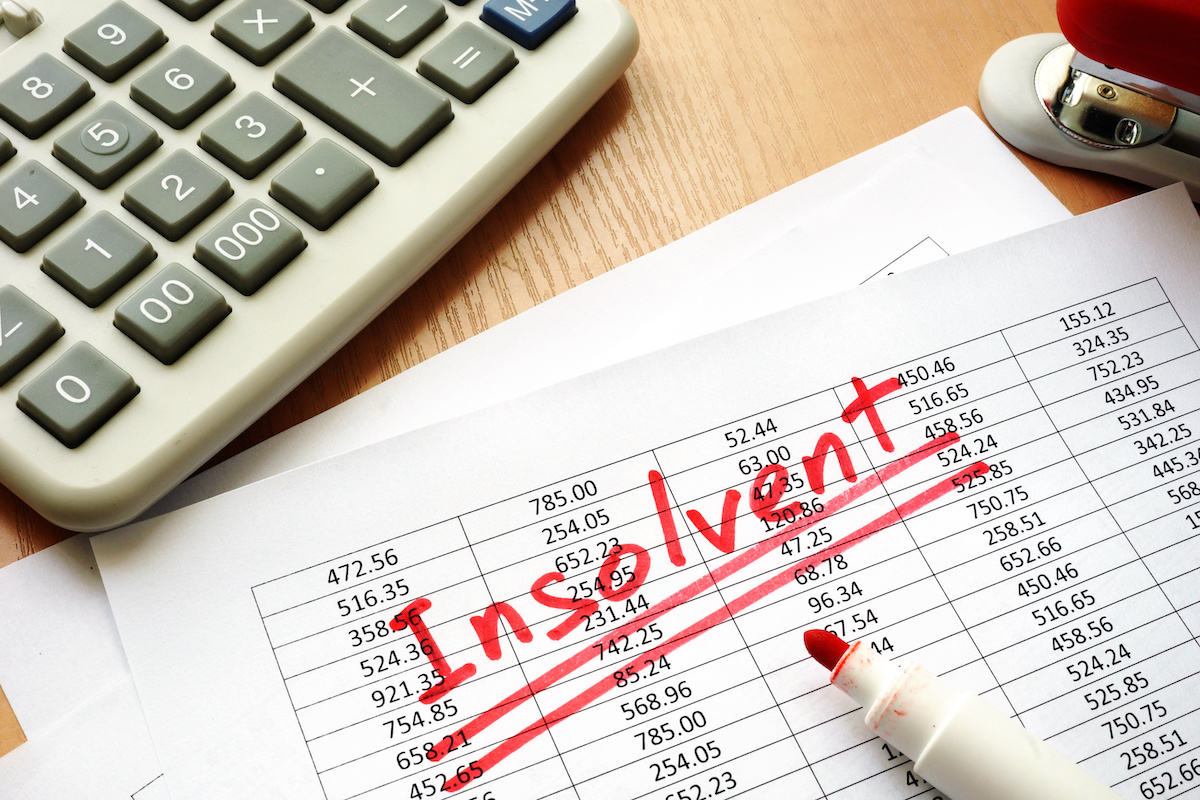Expert advice for creditors during the COVID-19 pandemic
Part of the government’s strategy to navigate the turmoil created by the COVID-19 pandemic has been focused on hibernating parts of the economy for an indefinite period and kickstarting things again with as many businesses still trading as possible.
Much has been made of the various state and federal stimulus packages to assist Australians, including the JobKeeper payment announced on 30 March, and the changes in insolvency legislation to help businesses survive the severe economic impacts of this pandemic.
The government has been rightly worried about people and businesses who owe money but have no income. But what about the groups they owe money to – the creditors?
The Solvers spoke to three experts on the matter:
- Bill Cotter is a registered liquidator and bankruptcy trustee, joint-managing partner of Robson Cotter Insolvency Group and member of the Insolve Panel.
- Bruce Pasetti is a solicitor, principal of Stratos Legal and a member of thesolvers.com.au.
- Ginette Muller is a safe harbour specialist, Partner of Hall Chadwick and member of the Insolve Panel.
It’s going to be tough
In discussions with creditors and businesses across Australia, Bill Cotter is under no illusions about how tough it will be for companies with large outstanding debts.
Bill says:
The focus of the government so far has been on keeping businesses trading, and this means a lot of changes for businesses who need to recover a debt.
We have seen the response period to creditor petitions and bankruptcy notices extended to six months and the minimum debt requirements to pursue liquidation raised to $20,000. See the full temporary relief measures for businesses here.
Businesses with substantial outstanding debts or those that work to collect debts will have very tough times ahead.
Their own cash flow will take a hit as a result of these measures and will need to be allowed for. Albeit the overarching intention and justification for the steps is clear, it will not minimise the pain that they will face.
With courts closed or cases delayed there will also be impacts for creditors reliant on the process of law.
For businesses that do not have statutory demands or actions already in hand, there will be limited recourse for the next six months.
In addition, with not courts all sitting, there will be delays to hearings and decisions on matters already in the justice system.
Take charge of the situation
Bruce Passetti says bank and non-bank finance is still available for good businesses facing a cashflow crunch right at the moment. What they want to see are accurate financials and proactive business owners.
He suggests three options for creditors to help control the outcome of this situation.
Get secured, and check your T&Cs
If you are still trading on terms with your debtor, you might be able to register on the PPSR or otherwise take security on what you have sold on those terms.
What’s in your T&Cs (such as obtaining Personal Guarantees) will determine what you can do to help secure yourself. For example, does the fine print allow you to put register an interest over the director’s house?
Check what rights the lawyers might have put in ages ago, and you’d never had to use. By securing what you can, you can become a ‘secured creditor’ and rank ahead of others who do not have those safeguards in place.
Get ‘judgment ready’ for when things pick up
In most jurisdictions you can still pay the legal fees and seek judgment for your debt, but getting beyond that, in most cases you will have to wait. The government has introduced extensions for compliance with a number of enforcement tools but there are still some avenues available to creditors to get paid or get secured.
The trouble is that things are still changing and settling down. Just one example is that the bailiffs or sheriffs in many jurisdictions are suspending their collection activities for several months.
It’s best to get advice on what your individual options are now.
Offer more time but secure your assets
If you don’t have great terms and conditions you can fall back on to be a secured creditor, think about a ‘Deed of Forbearance’.
Basically say to your debtor, “we won’t chase you for X months and you can then pay the debt off over at an agreed rate, but in return you agree for us to register on the PPSR and get security on our assets.”
It is so important to get these arrangements in a proper legal form so there is no confusion later on.
There are specialist insolvency law firms who can provide you with a template deed you can then fill in yourself. Try for a director’s guarantee.
Exposed industries should seek professional help and a safe harbour
The government has assisted greatly by giving every director in Australia Safe Harbour for the next 6 months, but this only protects them against insolvent trading.
Ginette Muller advises businesses need to be proactive and get themselves into proper Safe Harbour so they are protected against more than just insolvent trading.
Ginette says:
Now is a very good time to be looking at how to come out the other side. The Prime Minister is advocating for deals to be done with all creditors, not just banks and landlords. This could all be done as part of a restructuring arrangement and businesses need to think about how they do this.
Safe Harbour is a strategy that a business can turn to, but there are conditions. The business owner must have their accounts and records in order, get expert help from a professional, determine if the organisation is viable and then develop and implement a restructuring plan.
This strategy provides directors with time to take stock. You can negotiate with suppliers, engage with customers, refinance debts, diversify service offerings, target new markets, reassess fixed costs and plan a way to ride out the storm.
Watch this webinar on insolvency with Ginette Muller
Who to turn to for professional advice
If your business needs professional advice to get you through the next few months, The Solvers has a panel of experts with decades of experience in helping companies to meet challenges, build robust strategies and plan for future success.
Contact The Solvers for advice



